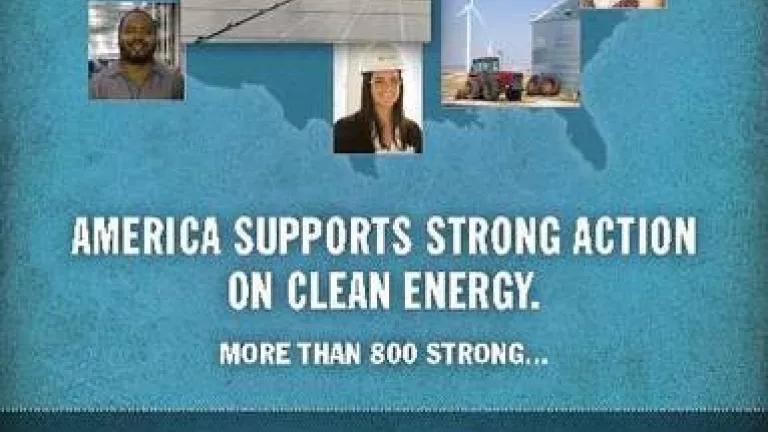
This is an exciting week in DC. House Energy and Commerce Chairman Henry Waxman circulated his and Congressman Markey's draft climate bill.
And you know what? It is an uplifting, inspiring proposal that challenges us to stop talking about a clean energy economy and start making it happen. I realize that uplifting and inspiring are not how 600+ page bills are usually described, so let me explain.
Here's what environmentalists, labor unions, economists and many others think is possible: Comprehensive energy and climate legislation can create and protect millions of good paying "green" jobs across the nation - insulating homes, installing solar energy systems, manufacturing batteries for hybrid cars, and building wind farms, among other occupations - while reducing the threat to our environment and prosperity global warming pollution is causing.
The Waxman-Markey bill has most of the major ingredients needed to make this happen.
- Renewable energy, clean fuels and smart grid. The bill requires utilities to get 25 percent of their electricity from renewables by 2025 and supports development of a smart electric grid that helps us maximize our use of renewables and minimize our energy expenses. It also contains several provisions that will reduce energy use and pollution from our cars and trucks.
- Energy efficiency. The bill requires natural gas and electric utilities to meet goals for reducing energy their customer's energy use; sets new standards for building efficiency, lighting, appliances and transportation and helps manufacturers and other industrial users to save energy as well.
These measures alone will require millions of Americans to get to work building, delivering and installing the clean energy systems and technologies. As I have previously discussed, millions of Americans already have the skills needed to do this:
- Carpenters will be needed to make buildings more energy efficient. There are about 970,000 carpenters in the United States, paid an average of more than $18 per hour.
- Electricians are essential to expanding mass transit solutions. There are nearly 625,000 electricians in the United States, paid an average of more than $21 per hour.
- Operations managers are needed to manufacture of energy-efficient automobiles. There are nearly 1.7 million operations managers in the United States, paid an average of nearly $43 per hour
- Machinists craft essential components for wind power. There are more than 400,000 machinists in the United States, paid an average of nearly $17 per hour.
- Welders are vital to solar power manufacturing. There are nearly 390,000 welders in the U.S., paid an average of more than $15 per hour.
- Industrial truck drivers transport supplies and fuels for the cellulosic biofuels sector. There are nearly 1.7 million industrial truck drivers in the U.S., paid an average of more than $17 per hour.
Of course, the Waxman-Markey bill also sets strong goals for reducing industrial and other pollution, aiming for 20% reductions from today's levels by 2020, and 83% reductions by 2050. As many have observed, this is an essential policy needed to drive investments in clean energy.
So why do we think that economy will come out better if we limit pollution and shift to clean energy? Simply put, clean energy puts more people to work, and includes more materials made here in the United States, than our dirty traditional energy sources.

Now some clean energy jobs will require some training, so the bill has a Green Jobs subtitle that creates a program of worker training, education, and transition to support the growth of green jobs and the new energy economy.
It is also worth noting that the draft bill makes a good start on ensuring that the green jobs are good jobs, by requiring that people put to work implementing it are paid the prevailing wage in their area. The more we can do to make sure that clean energy jobs will sustain families and communties, as well as our environment, the better.